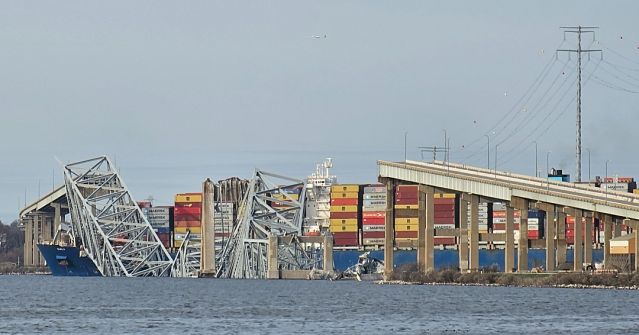
(1. https://www.cn.ca/en/media/cn-and-tcrc-bargaining-updates-/)
As a potential railway strike looms over Canada, with nearly 6,000 workers at CN and 3,300 at CPKC voting to strike as early as May 22, shippers and exporters find themselves at a critical juncture. While the possibility of disrupted supply chains and halted shipments of crucial products like grain, potash, and coal is a hypothetical scenario, it could quickly become a tangible threat to the economy. However, amidst the uncertainty, there are strategic steps that businesses can take to prepare for and mitigate the impact of a potential strike.
Understanding the Situation
Contract negotiations between CN, CPKC, and their unionized workers have been ongoing for the last six months, with key concerns ranging from rest provisions crucial for safety to modernizing agreements regarding hourly rates and scheduling changes. Despite months of negotiations, little progress has been made, leading to a stalemate that now threatens to escalate into a full-blown strike. Effective May 1, all parties have entered a mandatory 21-day period of federal mediation, fostering optimism that this intervention will result in a favorable outcome for both parties.
Assessing the Impact
The significance of this strike cannot be overstated, as it involves both major Canadian railways, potentially bringing bulk grain shipping to a near standstill. With no competitive alternative plans, the ripple effects on various industries, including resin, coal, and potash, could be substantial.
Expert Insights and Strategic Planning
While tensions surrounding the potential strike remain high, TRAFFIX’ industry experts offer valuable perspectives and strategic advice. Drew Roy, Director of Intermodal at TRAFFIX, emphasizes historical patterns where resolutions have either been reached in negotiations or by way of government intervention. However, he advocates for proactive planning, suggesting a contingency plan is prudent until the situation is resolved.
“On a nearly annual basis, Canadian railways deal with strike threats. Thankfully, in the past, both sides have either been able to come to a resolution or the government steps in and creates a resolution to prevent it from happening”, said Roy. While he doesn’t think it’s time to panic, Roy says, “Until the railways close their gates to accepting freight, it isn’t time to panic. That said, I suggest that shippers and exporters have a plan B in their pocket in case it happens this time”.
Preparing for Plan B
In the transportation realm, adaptability is critical, and in the event of a railway shutdown, shifting freight to the road becomes a primary alternative. However, TRAFFIX’ VP of Carrier Sales for Canada, Jaime Howlett, warns against overly optimistic approaches, stressing that sudden demand surges will lead to a competitive market with potentially skyrocketing prices. Thus, proactive measures such as staying informed, exploring alternative transportation modes, and securing reliable drayage partners become imperative.
“If the railways go on strike, the OTR (over-the-road) market suddenly floods with freight. In a lean year when carriers have been struggling with tight rates, the basic principles of supply and demand will dictate the market, so shippers need to prepare themselves for that”, said Howlett. “Overnight, you will have everyone going after the same capacity. When demand spikes but capacity doesn’t change, rates will increase significantly and rapidly for all OTR shippers”.
We asked Howlett if intermodal shippers should start locking in OTR rates and capacity now just in case the railway strike happens; he says:
“Carriers cannot run their business on theoretical freight, and we cannot reasonably expect them to. If a shipper has a confirmed load and pickup date, carriers can work with that. But shippers should be ready for their rates to increase from the time of booking. If the strike happens, that carrier will probably be able to get a load on the same lane for twice the amount of the booked rate. Expecting any business to pass up that kind of profit in a lean year is unrealistic. Shippers need to be ready to work with carriers, keeping the principles of supply and demand in mind”.
Strategic Steps for Shippers and Exporters
So, what can you do to prepare should the strike happen?
- Stay Informed: Regularly monitor updates from reliable sources and industry experts like the team at TRAFFIX to stay abreast of developments.
- Cost Planning: Engage with your TRAFFIX customer sales representatives to understand potential rate fluctuations and adjust cost projections accordingly.
- Explore Alternatives: Consider diversifying transportation modes to mitigate delays and stockouts, leveraging other TRAFFIX services like expedited shipping or air freight.
- Drayage Partnerships: Forge partnerships with reputable drayage providers like TRAFFIX to minimize terminal delays and demurrage fees.
- Post-Strike Optimization: Collaborate with your TRAFFIX sales representatives to optimize supply chains post-strike and recoup additional costs incurred.
- Early Booking: Secure confirmed loads as early as possible to preempt capacity shortages while being prepared for potential rate increases based on demand.
Looking Ahead
In the event of a closure, alternative rail partners may offer viable solutions, albeit with tightened capacity and adjusted rates. Ultimately, proactive preparation and strategic partnerships with transportation providers like TRAFFIX will be instrumental in weathering the storm of a potential railway strike.
As businesses navigate the uncertainties ahead, resilience and agility will be their greatest assets, ensuring continuity amidst disruption and laying the groundwork for sustainable growth beyond the challenges of the present moment.
Will your business be impacted by the potential Canadian railway strike? Talk to Drew Roy and Jaime Howlett today about shoring up your supply chain to mitigate supply chain disruptions.
Drew Roy
Director of Intermodal
aroy@traffix.com
Jaime Howlett
VP, Carrier Sales, Canada
jhowlett@traffix.com
References:
https://www.cp24.com/news/cn-cpkc-workers-approve-strike-mandate-as-possible-work-stoppage-looms-1.6869582
https://globalnews.ca/news/10468151/cn-cp-rail-strike-mandate/
https://www.reuters.com/world/americas/canadian-railway-workers-cn-cpkc-vote-strike-says-union-2024-05-01/



